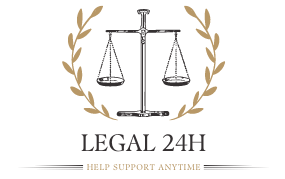
Planning for the future is essential, and having an estate planning attorney can make all the difference. They provide the expertise needed to ensure your assets are distributed according to your wishes and that your loved ones are taken care of. This guide will delve into the role of an estate planning attorney and the various aspects of estate planning.
Understanding Estate Planning
What is Estate Planning?
Estate planning involves preparing tasks that serve to manage an individual’s asset base in the event of their incapacitation or death. It includes the bequest of assets to heirs and the settlement of estate taxes.
Importance of Estate Planning
Estate planning is crucial for ensuring your assets are distributed according to your wishes. It helps minimize the uncertainties over the administration of a probate and maximizes the value of the estate by reducing taxes and other expenses.
Common Estate Planning Documents
Key documents include wills, trusts, powers of attorney, and healthcare directives. Each serves a specific purpose in ensuring your estate is managed and distributed according to your preferences.
Role of an Estate Planning Attorney
Expertise and Knowledge
An estate planning attorney specializes in the intricacies of estate law. They are knowledgeable about the various state and federal laws that can impact your estate and can help you navigate these complexities.
Drafting and Reviewing Documents
One of the primary roles of an estate planning attorney is to draft and review essential documents such as wills, trusts, and powers of attorney. They ensure these documents are legally binding and accurately reflect your wishes.
Advising on Estate Taxes and Strategies
An estate planning attorney provides advice on strategies to minimize estate taxes and other expenses. They help structure your estate in a way that maximizes the inheritance for your beneficiaries.
Essential Estate Planning Tools
Wills
A will is a legal document that outlines how your assets will be distributed after your death. It allows you to appoint a guardian for your minor children and an executor to manage your estate.
Trusts
Trusts are arrangements where a trustee holds assets on behalf of beneficiaries. They can be used to manage and protect assets, minimize estate taxes, and avoid probate.
Power of Attorney
A power of attorney grants someone the authority to make decisions on your behalf if you become incapacitated. This can include financial and healthcare decisions.
Steps to Take with an Estate Planning Attorney
Initial Consultation
During the initial consultation, the attorney will discuss your estate planning needs and goals. They will gather information about your assets, family situation, and any specific concerns you have.
Developing a Plan
Based on the information gathered, the attorney will develop a comprehensive estate plan tailored to your needs. This plan will include drafting the necessary documents and advising on strategies to achieve your goals.
Reviewing and Updating the Plan
It’s essential to review and update your estate plan regularly. Life changes such as marriage, divorce, the birth of a child, or changes in financial status can impact your estate plan. An attorney can help ensure your plan remains current.
Common Challenges in Estate Planning
Family Disputes
Estate planning can sometimes lead to family disputes, especially if there are significant assets involved. Clear communication and well-drafted documents can help minimize these disputes.
Changing Laws
Estate laws can change, impacting your estate plan. An attorney stays updated on these changes and can advise you on any necessary adjustments to your plan.
Asset Protection
Protecting your assets from creditors, lawsuits, and other risks is a critical aspect of estate planning. An attorney can advise on strategies to safeguard your assets.
Benefits of Professional Estate Planning
Peace of Mind
Having a comprehensive estate plan provides peace of mind, knowing that your assets will be managed and distributed according to your wishes. It also reduces the burden on your loved ones during a difficult time.
Reducing Taxes and Expenses
Proper estate planning can help minimize estate taxes and other expenses, ensuring more of your assets go to your beneficiaries.
Avoiding Probate
Probate can be a lengthy and expensive process. An estate planning attorney can help structure your estate to avoid probate, making the distribution of assets quicker and more efficient.
Choosing the Right Estate Planning Attorney
Experience and Specialization
Choose an attorney with extensive experience and specialization in estate planning. They should be knowledgeable about the latest laws and strategies in estate planning.
Reputation and Reviews
Research the attorney’s reputation and reviews. Look for testimonials from previous clients and any disciplinary actions or complaints.
Communication and Compatibility
Effective communication is crucial. Choose an attorney who listens to your needs and concerns and with whom you feel comfortable discussing personal matters.
Conclusion
An estate planning attorney plays a vital role in securing your financial future and ensuring your assets are distributed according to your wishes. By understanding the various aspects of estate planning and working with a knowledgeable attorney, you can create a comprehensive plan that provides peace of mind for you and your loved ones.
Final Thoughts
Estate planning is not just for the wealthy; it’s essential for anyone who wants to ensure their wishes are honored and their loved ones are protected. Start your estate planning journey today with the help of a professional estate planning attorney.
